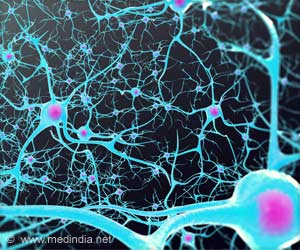New research from NYU Langone Medical Center ties digestion of a harmful protein to Alzheimer's disease.
New research from NYU Langone Medical Center ties digestion of a harmful protein to Alzheimer's disease.
During the study, Assistant Professor Dun-Sheng Yang and colleagues genetically enhanced the activity of digestive enzymes in the nerve cells of mice that were susceptible to producing an overabundant amount of amyloid beta, the abnormal protein found in the plaques littering the brains of people with Alzheimer's.The researchers say that the mice showed lower amounts of the protein in parts of the brain responsible for advanced thinking, learning and memory.
According to them, that observation suggested that the animals' brain cells were more efficient at digesting and expelling the toxic, misfolded protein.
In their study report, the researchers say that failure to degrade amyloid beta in lysosomes containing the digestive enzymes is an important factor in Alzheimer's disease.
Amyloid beta and another protein called tau are associated with the disease, but it hasn't yet been proven definitively that either actually causes the disease.
A presentation on the new finding was made at the ongoing Alzheimer's Association 2008 International Conference.
Advertisement
SRM/L














